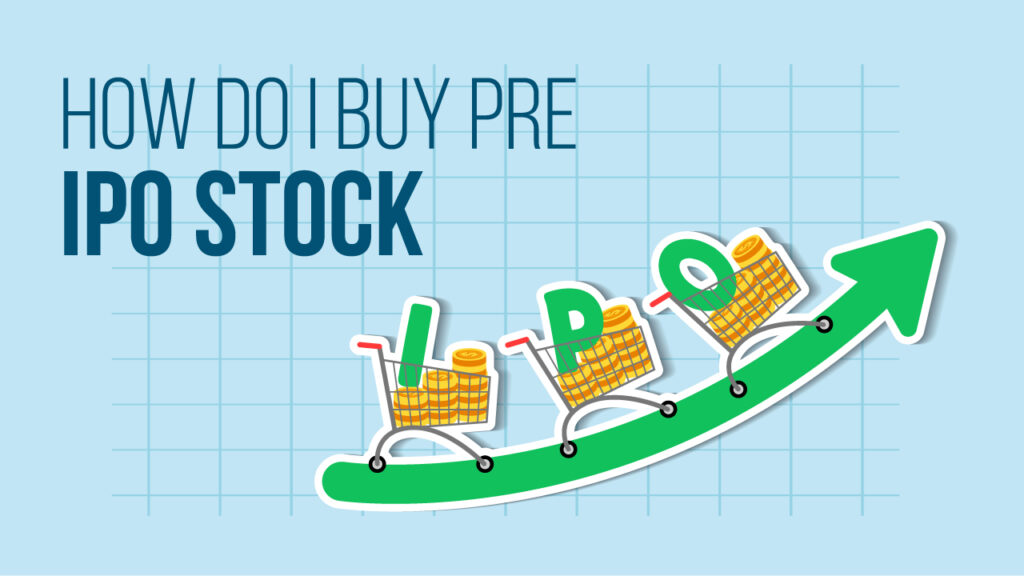Ever wondered if it is possible to buy a stock before an IPO? The simple answer is Yes. But not in all cases. You can buy shares of companies that are not listed on the exchange in various ways. Some of them include buying unlisted shares from an online marketplace, or in a pre IPO round (limited to select investors).
This article will guide you through the world of pre IPO investing discussing its pros and cons. It will help you decide which companies to go for before they become listed on the stock exchange.
What is Pre-IPO Investing?
Pre IPO investing means buying shares of a company before it goes public via an IPO (Initial Public Offering). It generally offers an opportunity to buy equity at a lower price and attractive valuation expecting that the share price would rise significantly post IPO listing.
| Key Features of Pre IPO Investing | Why Pre IPO is offered? | Who can Invest? |
| Opportunity for early entry | To raise funds prior to IPO | High Net Worth Individuals (HNIs) |
| Potential for higher return on investment | To allow early investors, VCs, and employees (via ESOPs) to take an exit. | Retail Investors through unlisted share platforms |
| Risk involved is also high | To create a buzz among the investors just around the IPO takes place | Venture Capitalist and Private Equity Firms |
| SEBI mandates a 6 months of lockin period post IPO | Financial Institutions |
How to Buy Shares before IPO?
Company shares can be bought before the actual IPO in a variety of ways. The most copmmon ones are described below
1. Online Marketplaces: Investors can buy unlisted shares online from platforms like:
- Planify
- Incred
- Unlisted Zone
- Altius Investech
- Trade Unlisted
These marketplaces specialize in buying and selling of unlisted shares. Liquidity may be an issue when dealing on these platforms.
2. ESOP Buyouts: Companies at an early stage offer their top management and employees ESOPs (Employee Stock Option Plans). If allowed investors can buy these from employees wanting to cash in their ESOP. Doing so might require a good network.
3. Mutual Funds: Mutual Funds often pool money from investors to invest in companies that are yet to be listed on the stock exchange. But these opportunities might be limited to high net worth individuals.
4. Off Market Transfer: Pre IPO shares can be transferred via off market deals between two demat accounts. It will require a Delivery Instruction Slip (DIS) or initiating an online transfer.
Popular Unlisted Shares
Unlisted shares of many famous new age companies are mentioned below:
| Unlisted Company | Unlisted Share Price |
| NSE | ₹1700 |
| OYO | ₹48 |
| BoAt | ₹1705 |
| HDB Financial Services Limited | ₹1050 |
| LAVA International | ₹50 |
| Hero Fincorp Limited | ₹1400 |
| Polymatech Electronics | ₹56 |
Advantages and Disadvantages of Buying Pre IPO Stock
Buying Pre IPO stocks come with their own advantages and disadvantages.
Advantages
1. Early Entry at lower valuation: Pre IPO shares are often priced lower than the IPO and post listing expected price.
2. High Return Potential: The potential from listing gains can be high even multifold in some cases.
3. Access to high growth companies: Investing prior to an IPO allows investors to tap into the early growth phase of a company.
4. Portfolio Diversification: Including unlisted shares into your investment portfolio can give you a hedge as it is a non correlated asset.
5. Limited Public Competition: Most conventional investors try to stay away from such risky investments therefore the competition stays limited.
Disadvantages
1. Liquidity Risk: Buying Pre IPO stocks comes with the issue of liquidity. They are not easily tradeable. The holding period can go until the IPO if no corresponding buyer is available.
2. Regulatory Lock In: SEBI has mandated a lockin period of 6 months period post IPO listing. It bars investors to liquidate their shares till 6 months.
3. Valuation Uncertainity: Pre IPO valuation are not certain and can be inflated to attract investors. Investors should make due diligence before making an investment.
4. Lack of Information: Unlisted private companies are not required to disclose much of their financial data as compared to the listed ones.
5. Minimum Investment Requirement: There is a minimum investment requirement to purchase shares of unlisted companies which might make it unfeasible for some investors.
Final Thoughts
Buying pre IPO stock can be rewarding but comes with associated risks. Therefore, investors should have a clear understanding of such an investment. It is important not to be driven with the astonishing returns they can make.
Conventional investors can choose to stay away. On the other hand investors with substantial risk appetite can allocate a small chunk of their overall portfolio into acquiring pre IPO stocks but only after a fair amount of research and analysis.
FAQ
How can I buy pre-IPO shares?
Pre IPO stocks can be bought through online marketplaces, ESOP buyout, off market transfer, mutual funds offering. Some of these ways might not be available for retail investors.
Is buying pre-IPO shares a good idea?
Buying pre ipo stock can be a good idea but is risky. If chosen the right companies and they decide to go for an IPO it can be profitable.
Is it legal to sell pre-IPO shares?
Selling pre IPO shares is subject to liquidity. However once the IPO has happened, there is a lockin period of 6 months as mandated by the SEBI (Securities and Exvhange Board of India).
Is it safe to buy pre-IPO stock?
Safety with pre IPO stocks can not be guaranteed. Investors must adhere to proper risk management and informed analysis before buying pre IPO stocks.
Does pre-IPO have a lock-in period?
There is no lock in period for holding pre IPO stocks. The lock in period comes only once the IPO arrives the market. Post IPO the lockin period is of 6 months.




